Gerry Kasten receives the 2018 Ryley-Jeffs Memorial Lecture Award
May 28, 2018
Gerry Kasten, Adjunct Professor, receives the 2018 Ryley-Jeffs Memorial Lecture Award
Gerry Kasten RD, MSc, FDC, an adjunct professor with the Faculty, has been chosen as the recipient of the 2018 Ryley-Jeffs Memorial Lecture Award by the Board of Directors of Dietitians of Canada (DC). The Ryley-Jeffs Award is the highest recognition that the Board of Dietitians of Canada can bestow on a DC member. Recipients exemplify dedication to the profession and a proven ability to chart new directions in the field of dietetics.
Gerry loves food – it empowers all he does. For nearly three decades, Gerry has enhanced people’s lives with practical and pragmatic advice on how to enjoy the deliciousness of food to improve their health. His passion for advocacy has led him to be a trailblazer in public health nutrition, culinary arts, teaching and media.
Gerry will present the 2018 Ryley-Jeffs Memorial Lecture at the DC National Conference in Vancouver on June 8th, at 9 am. A video recording of the conference presentation will be available on the DC website and a version of Gerry’s lecture will be published in the fall issue of the Canadian Journal of Dietetic Practice and Research.
Tagged with: 2018, Awards, Faculty
Tagged with 2018, Awards, Faculty
Categories: News
May 24, 2018
Jeff Holmes receives Undergraduate Research Excellence Award
Congratulations to Jeff Holmes, an undergraduate student in the Food, Nutrition and Health program, on receiving the Applied Physiology, Nutrition and Metabolism Undergraduate Research Excellence Award.
Jeff’s research project is titled ‘Serum zinc, copper, and selenium concentrations after 12 weeks of multiple micronutrient supplementation with or without iron,’ and was part of his directed studies with assistant professor Dr. Crystal Karakochuk. Jeff presented his research at the Canadian Nutrition Society Conference in Halifax, from May 3-6, 2018.
Along with a certificate and monetary award, Jeff’s research will be profiled on the Canadian Science Publishing blog.
Tagged with: 2018, Awards, Undergraduate
Tagged with 2018, Awards, Undergraduate
Categories: News
May 17, 2018

UBC Animal Welfare Program wins national award
On April 22, 2018, at the Canadian Federation of Humane Societies (CFHS) Animal Welfare Leadership & Innovation Awards Dinner in Calgary, the UBC Animal Welfare Program was presented with the award for “Leadership and Innovation in Animal Welfare Science”.
Receiving the award were Prof. David Fraser accompanied by Ms. Raegan Ahlbaum (Petsecure, host organization of the dinner) and Mr. Craig Daniell (CEO, BC SPCA) with Program graduates Nicole Fenwick (BC SPCA), Elisabeth Ormandy (Animals in Science Policy Institute), Erin Ryan (BC SPCA) Jeffrey Spooner (Agralytics, Ottawa), Catherine Schuppli (UBC), Sara Dubois (BC SPCA), and Lee Neil (University of Guelph). The dinner, attended by over 300, was organized by CFHS (‘Humane Canada’), as part of their annual animal welfare conference.
Tagged with: 2018, Animal Welfare Program, Awards
Tagged with 2018, Animal Welfare Program, Awards
Categories: News
May 3, 2018
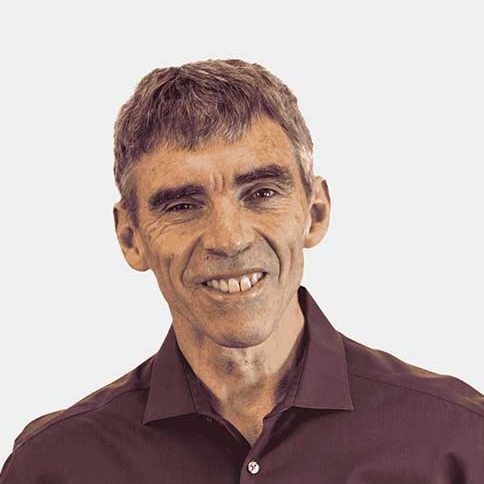
James Vercammen
Professor, Food and Resource Economics (jointly appointed with the Sauder School of Business)
604–822–5667
james.vercammen@ubc.ca
MacMillan 335, 2357 Main Mall
LinkedIn
University of California, Berkeley, 1991, PhD, Agriculture and Resource Economics
University of Saskatchewan, 1988, MSc, Agricultural Economics
University of Saskatchewan, 1986, BSA, Agricultural Economics
James conducts research in the general area of commodity prices and environmental policy. Of particular interest is the use of time series methods to examine the link between energy prices and food prices. In a second strand of research James examines how Canada’s federal carbon tax impacts the price of agricultural commodities. More recently, James has been using machine learning models to analyze commodity prices in various agri-energy applications. James was co-editor of the Canadian Journal of Agricultural Economics from 2008 – 2013 and the American Journal of Agricultural Economics from 2013 – 2017.
James teaches primarily at the graduate level in the Master of Food and Resource Economics (MFRE) program: FRE 501 Strategic Economic Analysis of Agri-Food Markets.
For a full list of publications, please see Google Scholar.
Textbook
Vercammen, James (2011), Agricultural Marketing Structural Models for Price Analysis, Routledge.
Journal Articles
Vercammen, J. “A random walk for agricultural total factor productivity”, Canadian Journal of Agricultural Economics (Special Issue) 72 (2024): 213 – 233.
Vercammen, J. “Information Rich Wheat Markets in the Early Days of COVID-19”, Canadian Journal of Agricultural Economics (Special Issue) 68 (2020): Pages 177-184.
Vercammen, J., “A Dynamic Analysis of Cost‐share Agri‐environmental Programs”, Canadian Journal of Agricultural Economics 67 (2019): 15-30.
Vercammen, J., “A Welfare Analysis of Conservation Easement Tax Credits”, Journal of the Association of Environmental and Resource Economists, 6, no. 1 (2019): 43-71.
Fulton M. and J. Vercammen, “Optimal NGO Financing of a Resource Management Certification Scheme”, Environmental and Resource Economics 58 (2014): 605 – 626.
Vercammen, J. and A. Doroudian, “Portfolio Speculation and Commodity Price Volatility in a Stochastic Storage Model”, American Journal of Agricultural Economics 96 (2014): 517 – 532.
Vercammen, J. “A Partial Adjustment Model of Federal Direct Payments in Canadian Agriculture”, Canadian Journal of Agricultural Economics 61 (2013): 465 - 485.
Vercammen, J. “Agri-Environmental Regulations, Policies, and Programs”, Canadian Journal of Agricultural Economics 59 (March, 2011): 1 – 18.
Students in the Masters of Food and Resource Economics (MFRE) program spend the last four months (May to August) conducting a graduating project. Each year James supervises one or more projects. Examples of recent projects include:
- Forecasting the Changes in the Consumer Price Index (CPI) for Various Food Categories
- Electricity Demand in Response to Temperature Fluctuations in Alberta
- Simulation Methods for Pricing a Weather Derivative
- Optimal Pairs Trading Strategies for WTI and Brent Crude Oil Futures Contracts
- A Spatial Analysis of Access to Food Supermarkets by Marginalized Households in British Columbia
- Mitigating Methane Emissions in Canadian Beef Cattle Production
- Supply Chain Analysis of Food Prices
Tagged with: Faculty, Food and Resource Economics, Integrated Studies
Tagged with Faculty, Food and Resource Economics, Integrated Studies
Categories: Profile Faculty, Profiles
April 27, 2018
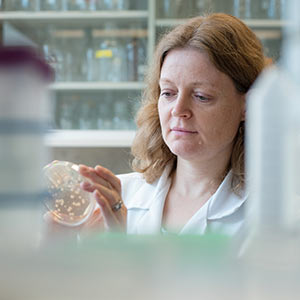
Vivien Measday
Associate Professor, Wine Research Centre
Associate Member – Department of Biochemistry and Molecular Biology
Associate Member – Michael Smith Laboratories, Genomics Group
604–827–5744
vivien.measday@ubc.ca
FNH 325, 2205 East Mall
Measday Lab
University of British Columbia, 2003, Post-doctoral Research, Dept. Medical Genetics
University of Toronto, 1998, PhD, Dept. Medical Genetics and Microbiology
University of British Columbia, 1991, BSc, Dept. Biochemistry
Wine Yeast Research
My research focuses on the study of yeast populations associated with the vineyards of British Columbia’s Okanagan Valley. We partner with the BC Wine Grape Council and associated wineries to perform spontaneous fermentations and isolation of the wine yeast Saccharomyces cerevisiae (S. cerevisiae). Using high-throughput genotypic analyses, we generate a genetic fingerprint of each S. cerevisiae strain and compare it to a fingerprint database of S. cerevisiae commercial wine yeast strains that we have generated. Our goal is to identify S. cerevisiae indigenous to the Okanagan Valley with enological potential. We collaborate with Dr. Dan Durall’s laboratory at UBC-Okanagan to achieve this goal.
Projects
- Survey of yeast populations associated with Pinot Noir grapes in 3 Okanagan sub-regions: Oliver-Osoyoos, Penticton-Naramata, Kelowna
- Comparison of yeast populations in Pinot Gris and Pinot Noir winery versus vineyard fermentations
- Isolation and characterization of non-Saccharomyces yeast isolated from spontaneous fermentations
- Characterization of Saccharomyces uvarum associated with Okanagan white wine fermentations – in collaboration with Dr. Dan Durall’s lab
- Fungal community identification from Pinot Noir and Pinot Gris fermentations using high-throughput Illumina amplicon sequencing
Retrotransposon Research
My lab uses S. cerevisiae as a model system to study retrotransposition. Retrotransposons are repetitive DNA elements in the genome that can replicate and insert a new copy into the genome via an RNA intermediate. We study the Ty1 retrotransposon which has a structure and life cycle similar to human immunodeficiency virus type 1 (HIV-1) except that Ty1 does not exit the cell. Our focus is to identify host factors that interact with integrase, a conserved protein that is required for insertion of retroviral/retrotransposon DNA into the genome.
Projects
- Characterization of the interaction between RNA Polymerase III and Ty1-Integrase
- The role of the Nuclear Pore Complex in Ty1element genome integration
Cheng, E.*, Martiniuk, J. T.*, Hamilton, J., McCarthy, G., Castellarin, S. D. and Measday, V. (2020) “Characterization of Sub-Regional Variation in Saccharomyces Populations and Grape Phenolic Composition in Pinot Noir Vineyards of a Canadian Wine Region”, Frontiers in Genetics, https://doi.org/10.3389/fgene.2020.00908
*these 2 authors contributed equally to this work
Cheung, S., Manhas, S. and Measday, V. (2018) “Retrotransposon targeting to RNA Polymerase III-transcribed genes”. Mobile DNA, April 23; 9:14.
Manhas, S., Ma, L. and Measday, V. (2018) “The yeast Ty1 retrotransposon requires components of the Nuclear Pore Complex for transcription and genomic integration” Nucleic Acids Research 2018 Apr 20; 46(7)3552-3578.
Martiniuk, J.T., Pacheco, B., Russell, G., Tong, S., Backstrom, I. and Measday, V. (2016) “Impact of Commercial Strain Use on Saccharomyces cerevisiae Population Structure and Dynamics in Pinot Noir Vineyards and Spontaneous Fermentations of a Canadian Winery” PLOS ONE, Aug 23;11(8):e0160259
Cheung, S., Ma, L., Chan, P.H., Hu, H.L., Mayor, T., Chen, H.T. and Measday, V. (2016) “Ty1 integrase interacts with RNA Polymerase III-specific subcomplexes to promote insertion of Ty1 elements upstream of Polymerase (Pol) III-transcribed genes” Journal of Biological Chemistry, Mar18; 291(12): 6396-411
Tagged with: Faculty, Food Nutrition and Health, Food Science, Master of Food Science
Tagged with Faculty, Food Nutrition and Health, Food Science, Master of Food Science
Categories: Profile Faculty, Profiles
April 27, 2018
Dr. Wang received her B.S. degree in Pharmacy from Fudan University (2005) and Ph.D. degree in Biology from the Institute for Food Safety and Health at Illinois Tech (2010). Prior to joining UBC in 2013, she was a postdoctoral associate at Cornell University.
Tagged with: Faculty, Food Nutrition and Health, Food Science, Master of Food Science
Tagged with Faculty, Food Nutrition and Health, Food Science, Master of Food Science
Categories: Profile Faculty, Profiles
April 27, 2018
- FNH 200: Exploring Our Food
In this course, students are introduced to key concepts related to the science of food, including: the Canadian food system, chemical and physical properties of foods; issues pertaining to safety; government regulations; food additives; food preservation techniques and transformation of agricultural commodities into food products.- FNH 302: Food Analysis
Principles of and procedures for analysis of the chemical, physical and sensory properties of food; proximate analysis; introduction to instrumental analysis; introduction to anatomy and physiology of sensory perception, reporting and analysis of data.- FOOD 524: Advances in Food Process Science
Tagged with: Faculty, Food Nutrition and Health
Tagged with Faculty, Food Nutrition and Health
Categories: Profile Faculty, Profiles
April 27, 2018

David McArthur
Honorary Lecturer, Applied Biology
604–209–5243
david.mcarthur@ubc.ca
MacMillan 133, 2357 Main Mall
University of Alberta, 1992, PhD, Plant Physiology
University of British Columbia, 1987, MSc, Horticulture
University of British Columbia, 1983, BSc (Agr)
- Reproductive biology of fruit crops including hormone physiology
- Fruit crop responses to environment (cold injury) and cultural management
- Efficiency of nutrient uptake and allocation; nutrient leaching due to soil-type & nutrient-source.
- Plant nutrition and plant–microbe interactions (mycorrhizae)
- Use of advanced microscopic techniques (Confocal Laser Scanning Microscopy, SEM, TEM) to characterize flower development, mycorrhizae and plant roots.
- APBI 322: Horticultural Techniques
- APBI 360: Food & Environment II
- APBI 490 002: Sustainable Fruit Production
- FNH 330: Introduction Wine Science I
- FNH 335: Introduction Wine Science II
McArthur DAJ (2001) Optimizing nutrient delivery in variable soils for sustainable highbush blueberry production. Acta Horticulturae 564: 393-406
McArthur DAJ, NR Knowles (1993) Influence of species of vesicular-arbuscular mycorrhizal fungi and phosphorus nutrition on growth, development and mineral physiology of potato. Plant Physiol 102: 771-782
McArthur DAJ, NR Knowles (1993) Influence of vesicular-arbuscular mycorrhizal fungi on the response of potato to phosphorus deficiency. Plant Physiol 101: 147-160
Non-referee:
McArthur DAJ, Mauza B (2003) Hidden winter injury in BC cranberry (Vaccinium macrocarpon Ait): frost, cold injury or biotic stress? North American Cranberry Researchers & Extension Workers Conference, U. Mass
McArthur DAJ, Isman M (2003) Reduced-risk pesticides based on plant essential oils (fruit crops). NSERC & FVSGA, RC, BCCGA, BCBC-Industry Report
McArthur DAJ, Scaman, CH Zhang R, Ellis BE, Pharis RP (2001) Carbohydrate metabolism, mineral nutrition and endogenous hormones of cranberry before, during and after floral induction. Cranberry Institute Reports
McArthur DAJ, Gelok E, Wan A, Boss A, Isman M (2000) Reduced-risk pesticides based on plant essential oils for integrated fruit crop management. 2000 Int. Chem Congress, ACS, Honolulu
Tagged with: Faculty
Tagged with Faculty
Categories: Profile Faculty, Profiles
April 27, 2018
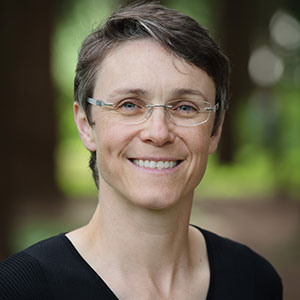
Carol McAusland
Professor, Food and Resource Economics
Food and Resource Economics Program Director
604–822–3350
carol.mcausland@ubc.ca
MacMillan 337, 2357 Main Mall
LinkedIn
University of Michigan, 1999, PhD, Economics
University of Michigan, 1996, MA, Economics
University of British Columbia, 1994, MA, Economics
University of British Columbia, 1993, BA, Hon. Economics
Dr. McAusland’s research focuses on interactions between globalization and public good provision. This includes the climate policy, invasive species, skilled-labour migration, trade liberalization, the World Trade Organisation, intellectual property rights, political economy, transport emissions, regulatory takings, and consumer-related environmental policy such as carbon footprint taxes and vehicle subsidies.
Graduate Students
Applying to work with Prof. McAusland
Prof. McAusland advises Masters and PhD students through the Integrated Studies in Land and Food Systems MSc and PhD programs. She also co-supervises graduate students in the Vancouver School of Economics.
Students interested in applying to work with Prof. McAusland via the ISLFS program are advised to contact her via email, sending her the following: transcripts (unofficial copies are fine) and a 2-page proposal outlining the research they would like to conduct.
Dr. McAusland teaches at the undergraduate level and at the graduate level in the Master of Food and Resource Economics (MFRE) program.
Courses
- FRE 420 Economics of International Trade and the Environment
- FRE 460 Economics of Food Consumption
- FRE 502 Food Market Analysis
See Google Scholar for a full list of publications.
McAusland, Carol. "Carbon taxes and footprint leakage: Spoilsport effects." Journal of Public Economics 204 (2021): 104531.
Epanchin-Niell, Rebecca, et al. "Biological invasions and international trade: Managing a moving target." Review of Environmental Economics and Policy 15.1 (2021): 180-190.
Gulati, Sumeet, Carol McAusland, and James M Sallee. 2017. “Tax incidence with endogenous quality and costly bargaining: Theory and evidence from hybrid vehicle subsidies,” Journal of Public Economics 155: 93-107.
McAusland, Carol and Nouri Najjar. 2015. “Carbon footprint taxes,” Environmental and resource Economics 61:37-70.
McAusland, Carol and Nouri Najjar. 2014. “The WTO Constitency of Carbon Footprint Taxes,” Geo. J. Int'l L. 46:765.
McAusland, Carol and Daniel L Millimet. 2013. “Do national borders matter? Intranational trade, international trade, and the environment,” Journal of Environmental Economics and Management 65:411-437.
Aisbett, Emma and Carol McAusland. 2013, "Firm Characteristics and Influence on Government Rule-Making: Theory and Evidence,” European Journal of Political Economy 29: 214-235.
Dr. McAusland is Professor of Food and Resource Economics in the Faculty of Land and Food Systems at the University of British Columbia in Vancouver, Canada.
She served as Chair (incoming/current/outgoing) of the Canadian Resource and Environmental Economics Association from 2018-2021 and as an elected member of the Board of Directors of the Association of Environmental and Resource Economists (2007-2009). She was a co-editor of the Journal of Environmental Economics and Management (2009-2012) and has served on the editorial board/council of Journal of Environmental Economics and Management (2006-2009, 2012-2015) and the Journal of the Association of Environmental and Resource Economists (2014-2020)
She is a Fellow of the CESifo Research Network and the University of Calgary's School of Public Policy. Dr. McAusland has published research on a wide range of subjects in the fields of environmental and international economics, including environmental politics, migration, investment treaties, carbon policy design, brain drain, invasive species, and WTO rules regarding environmentally motivated trade restrictions.
Tagged with: Faculty, Food and Resource Economics, Integrated Studies
Tagged with Faculty, Food and Resource Economics, Integrated Studies
Categories: Profile Faculty, Profiles
April 24, 2018
The University of Kiel, 2014, PhD Economics
University of Greifswald, 2008, Diplom Landscape Ecology
My research focuses on the interaction of economic development and the environment. Specifically, I am interested how improved market access and property rights affect rural welfare and natural resources such as forests, fish stocks and biodiversity.
I teach environmental and resource economics at the undergraduate and graduate level:
ECON/FRE 374 Land and Resource Economics
FRE 603 Advanced Food and Resource Economics
See Google Scholar for a complete list of publications.
Noack, F., & Costello, C. (accepted). Credit markets, property rights, and the commons. Journal of Political Economy.
Larsen, A. E., Noack, F., & Powers, L. C. (2024). Spillover effects of organic agriculture on pesticide use on nearby fields. Science, 383(6689)
Noack, F., Larsen, A., Kamp, J., & Levers, C. (2022). A bird's eye view of farm size and biodiversity: The ecological legacy of the iron curtain. American Journal of Agricultural Economics, 104(4), 1460-1484.
Tagged with: Faculty, Food and Resource Economics, Integrated Studies
Tagged with Faculty, Food and Resource Economics, Integrated Studies
Categories: Profile Faculty, Profiles









